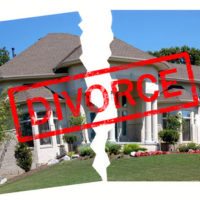Co-Owning Property with a Former Spouse

It is not uncommon for married couples to own property, including the family home, jointly. While owning property together is often simpler during marriage, it can become another hurdle to overcome in the event of divorce. How these issues are handled depends largely on the parties’ relationship and financial circumstances. It is not uncommon, for instance, for many parties to sell shared property and then split the proceeds. Others may find themselves the sole owner of a formerly shared property, but required to give up other assets in exchange. In some cases, a couple could even decide to continue sharing a property after divorce. For help deciding which, if any, of these options is best for you and your family, please reach out to our experienced Fort Lauderdale property division attorneys today.
When is Co-Owning Property After Divorce Beneficial?
Most couples who decide to continue co-owning property after divorce, do so because they share children (or a business) and one of the spouses wishes to stay in that home with the kids until they are out of the house. Alternatively, a person could find themselves wanting to stay in the house, but unable to buy out the other party immediately. In these cases, both parties could agree to continue co-ownership of the house, while the spouse remaining in the home will be responsible for future mortgage payments. Some couples, while they want to sell the property and divide the proceeds, decide to hang on to their property until the housing market improves so as to avoid taking a loss on their investment.
The Risks of Co-Ownership
Although co-ownership of marital property after divorce is in some families’ best interests, it is also true that there are a number of risks that come with co-owning property with an ex-spouse. One such risk is the possibility of a forced sale. This can occur when one of the parties who co-owns the property falls on hard times and is forced to file for bankruptcy or is sued by creditors. Because the parties still share ownership, the house could technically be seized and sold to pay off the creditors.
Another risk that accompanies co-ownership after divorce is that co-owned property mortgages show up on both of the owners’ credit reports. This means that if the former spouse who is responsible for paying the mortgage makes late payments or misses them entirely, both parties could see the effects on their credit reports. Finally, soon-to-be former spouses who are thinking about retaining co-ownership of a property after divorce, should keep in mind that some sort of collaboration will undoubtedly be necessary to ensure that property-related expenses are covered. Such collaboration can be difficult for former partners, whose decision to end their marriage may have been due to an inability to work together or make joint decisions.
A Dedicated Florida Property Division Lawyer
If you and your partner own property together and have decided to end your marriage, please call experienced Florida property division lawyer Sandra Bonfiglio, P.A. at 954-945-7591 to learn more about your ownership options.







